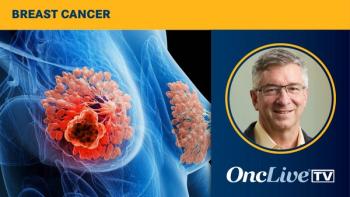
Testing for Germline BRCA Mutations in the Future
Transcript:
Joyce O’Shaughnessy, MD: Really, we’re in the ascendancy of BRCA—in needing to know our patients’ BRCA status. We’re kind of creeping up with a new subtype here. Do you think it may just be easier, in the future, to test everyone as soon as they’re diagnosed so we don’t miss people?
Nadine Tung, MD: Well, you’re preaching to the converted, I would have to say. I’ve always considered ER, PR, HER2, and BRCA in every breast cancer case. But what do the data say? If everybody were to use the NCCN [National Comprehensive Cancer Network] criteria, we’d find most of the germline BRCA mutation carriers. If technology would help us do that, that would be great. But we’re not there. There’s a lot of undertesting. In fact, just this month, the Journal of Clinical Oncology published a paper on a study that looked at patients in Georgia and Los Angeles, I think. They surveyed 5000 patients with breast cancer. They found 1700 who fit the NCCN criteria. Less than half of them had germline BRCA testing. And if you asked them why, half of them said that they never even had a conversation with their doctor—forget about with a genetic counselor. There is so much under testing. Anything that we can do to identify every single patient with a germline BRCA mutation would be good.
Tiffany Traina, MD: Even if we use this as an opportunity to remember to revisit family history. We have the pleasure of taking care of women for many, many years and being able to recognize family history changes and updates over time. So we could use this as an opportunity to check in, to see whether we are missing the chance to test someone who really deserves testing, meeting NCCN guidelines.
Nadine Tung, MD: Absolutely.
Joyce O’Shaughnessy, MD: As we get more data around PARP inhibitors and their efficacy across multiple germline mutations, maybe it will become more and more standard to just do up-front testing on everybody? If we get the PARP inhibitors into the curative setting, and they show benefit there, then it’s going to be even more compelling to not miss those patients. It’s going to have a positive outcome.
Transcript Edited for Clarity




































